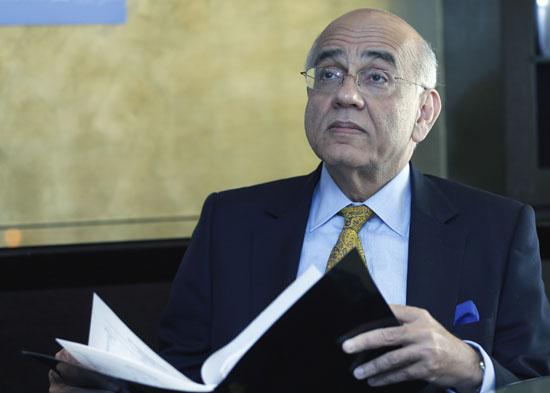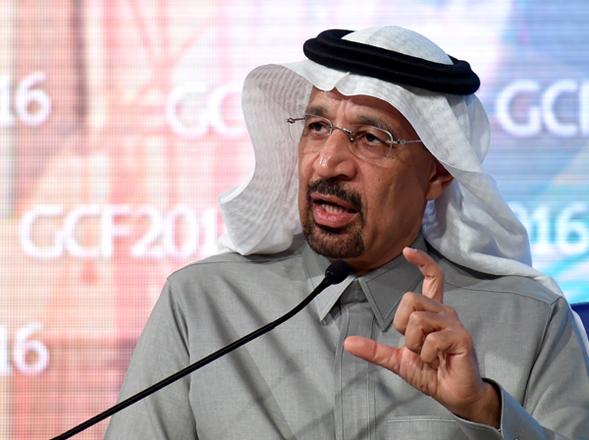You are here
Expectations of Saudi oil shake-up cause uncertainty
By Reuters - Sep 08,2015 - Last updated at Sep 08,2015
DUBAI/RIYADH — A shake-up of Saudi Arabia's oil leadership by King Salman has introduced a new element of unpredictability to its energy policymaking at a moment when Riyadh is grappling with slumping crude prices and its war in neighbouring Yemen.
State oil giant Aramco has been without a permanent chief executive since April, when Khalid Al Falih was made health minister, and the old Supreme Petroleum Council, where energy policy was historically made, was abolished in January.
While the world's top crude exporter has always prized stability and consistency in crafting oil policy, the changes, alongside a shift in market strategy that contributed to the world price slump, have left analysts and traders guessing as to King Salman's long-term vision.
The main tenets of Saudi oil policy, maintaining the ability to stabilise markets via an expensive spare-capacity cushion and a reluctance to interfere in the market for political reasons, are still set in stone, say market insiders.
But the uncertainty has led to speculation over the fate of both veteran Oil Minister Ali Al Naimi and the wider composition of the kingdom's energy and minerals sectors, with rumours abounding that a sweeping restructure could be imminent.
"There will be changes [at the oil ministry], but no one knows when or what will happen next. It could be tomorrow, next week or a month from now," said a Saudi insider. "The decisions are being taken by a small circle of people and a few advisers."
The key person in that small circle is Prince Mohammed Bin Salman, the young deputy crown prince who without having any previous oil experience has emerged since his father's accession to power as the most powerful figure in Saudi economic and energy policy.
The prince heads both an economic development super committee and a new council overseeing Aramco, making him the first royal ever to directly supervise the state oil giant, the world's biggest energy company.
The sense of unpredictability has only been sharpened by the wider geopolitical and market climate.
"It's anybody's guess what will happen next," said a Western diplomat in Riyadh.
Market changes
While Riyadh's launch of air strikes in Yemen on March 26 stunned observers of a country more noted for its use of backroom cheque book diplomacy, its shift in oil market policy in November was equally surprising, and arguably more important.
The kingdom led other producers within the Organisation of Petroleum Exporting Countries (OPEC) in November against cutting output levels, a move that abandoned decades of work to protect oil prices in favour of a strategy geared towards maintaining market share against rival producers such as Russia and US shale drillers.
Brent prices have more than halved since then, partly due to that policy shift, to around $48 a barrel down from peaks of around $115 in June 2014. This has tested Saudi Arabia's ability to corral its fellow OPEC members and added fiscal pressure as Riyadh cements its leadership change and faces regional turmoil.
"With the advent of US shale, Saudi Arabia has entered unchartered territory where it is still learning about a new source of supply. This necessitates a new approach for managing their investment and output policies," said Bassam Fattouh, director of the Oxford Institute for Energy Studies.
In his other role, as defence minister, Prince Mohammed has been the public face of the war in Yemen, which may have cut into the time he has been able to devote to restructuring Saudi Arabia's energy sector.
One clue as to what may eventually happen was given by Al Arabiya, a news channel with close ties to Salman's branch of the ruling Al Saud family, which reported on April 30, that Aramco would be restructured and split from the oil ministry.
Some Saudi energy sources have speculated about merging the oil ministry with the electricity, water and renewable power entities, to create a new energy ministry. Some have even raised the possibility of a limited privatisation of Aramco.
New energy godfather?
Inevitably, given his role as godfather of Saudi Arabia's energy sector from his youth as an Aramco office boy in the 1940s to his leadership of the company in the 1980s and as minister since 1995, such speculation also takes in Naimi's own future.
It will be impossible to find a like-for-like replacement for Naimi, who turns 80 this month and has enjoyed unmatched scope to interpret and implement policy thanks to his experience and the respect in which he is held internationally.
However, some had seen Falih, the former Aramco chief executive, as being his most likely successor, following Naimi's route from Aramco into the ministry.
Whether his move to the health ministry makes that more or less likely is unclear, as is the fact he has been left in place as Aramco chairman.
Senior Aramco Vice President Amin Al Nasser was named acting chief executive on May 1, but there has been no further word as to whether he will remain in the job.
Others still bet on the deputy oil minister, Prince Abdul Aziz, another of Salman's sons, being promoted thanks to his years of experience. But that would fly in the face of the Al Saud's preference for keeping the oil ministry in the hands of technocrats and steering it clear of princely politicking.
How far this unpredictability affects the market is unclear, said Samuel Ciszuk, senior adviser at the Swedish Energy Agency, pointing to the fact that the new oil strategy appeared to enjoy consensus at the top levels of the Al Saud.
However, "the uncertainty element... could grow if the changes are perceived to be detrimental to the market", he added.
Related Articles
Gulf oil exporters must reduce spending, including subsidies and diversify their economies to cope with lower revenues caused by the sharp drop in crude prices, the International Monetary Fund (IMF) said.
RIYADH — Saudi Arabia's King Salman on Saturday replaced his veteran oil minister and restructured some big ministries in a major reshuffle
RIYADH — Saudi Aramco on Thursday announced its first global investment in liquefied natural gas, part of a broader bid by the energy giant

















